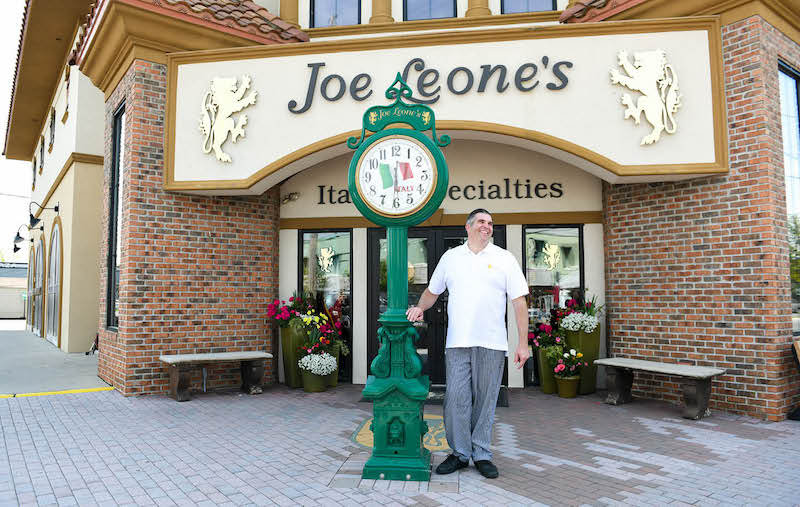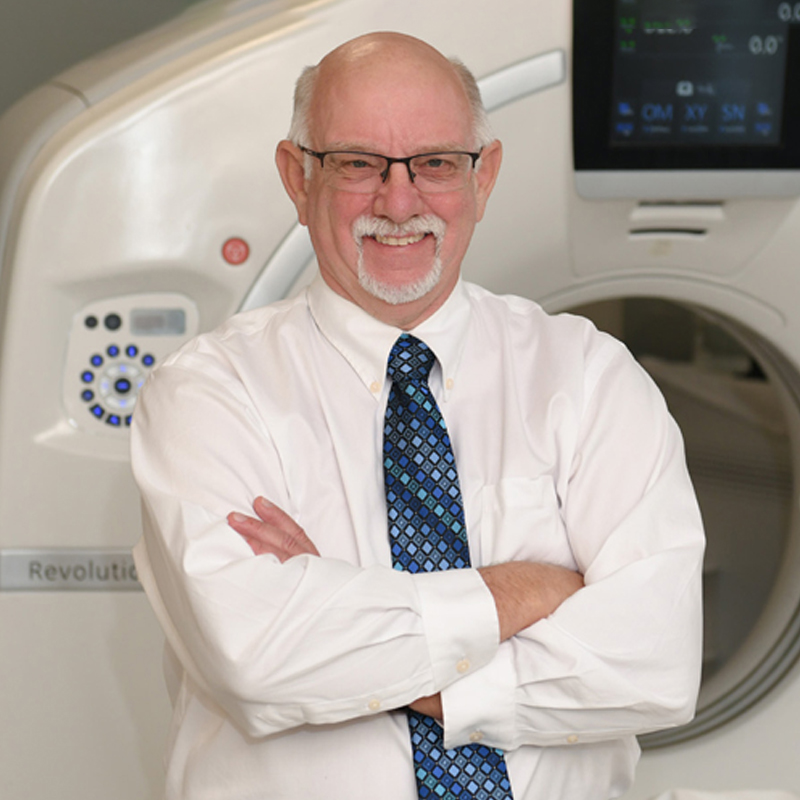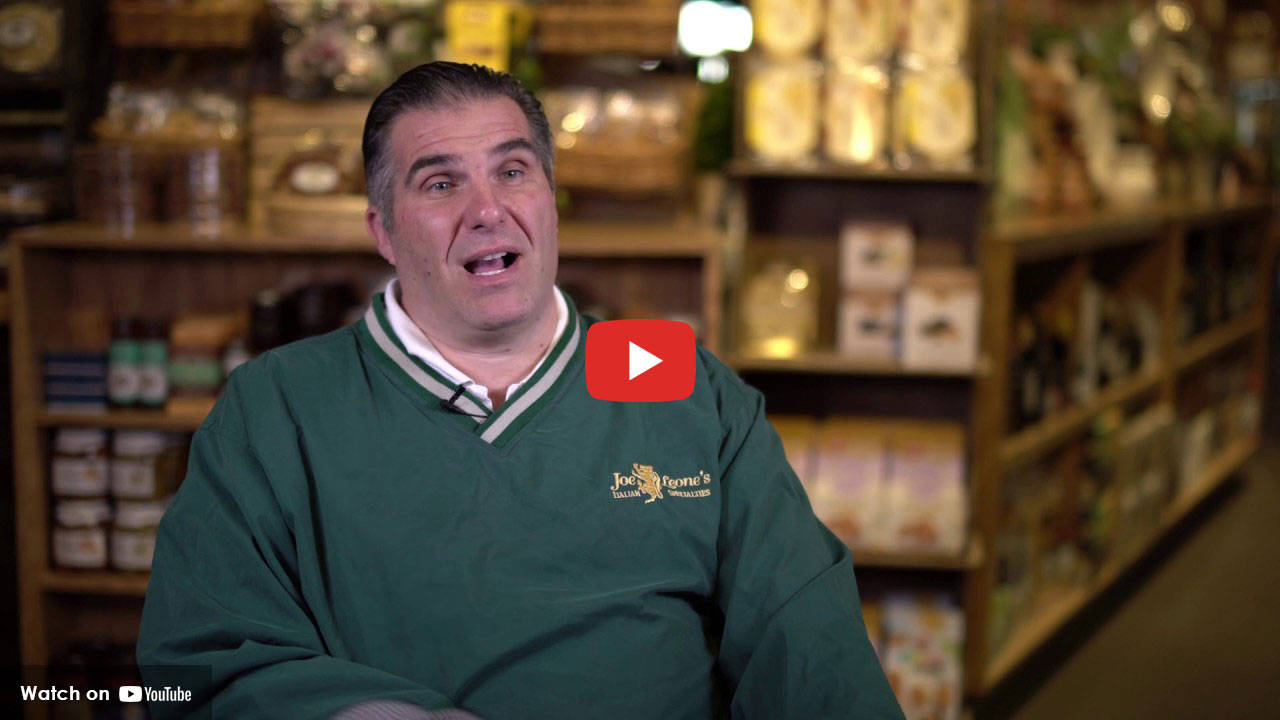Breaking the Chain of Heart Attack

December 23, 2019
By Donna Sellmann
Not many people are worried about having a heart attack in their 40s. But for Joe Leone Introna, the approach of his 42nd birthday cast a dark shadow of concern. Six of his male relatives died at age 42. In fact, at least 14 men on his mother’s side of the family died between 40 and 43 years old. These were otherwise healthy men who dropped dead of a heart attack at a young age. Would Joe suffer the same fate?
At age 30, Joe developed atrial fibrillation, which was corrected and continually monitored by his electrophysiologist. Joe continued to be proactive and started pursuing a variety of cardiovascular tests. Then on February 5—at the ominous age of 42—Joe experienced sudden chest, arm and jaw pain. He fainted and was rushed to Jersey Shore University Medical Center. Although tests showed he had not suffered a heart attack, his symptoms persisted and doctors decided to perform a cardiac catheterization. This procedure allowed interventional cardiologist Nelson LaMarche, M.D., to look inside the arteries of Joe’s heart.
What he found was shocking.
Recipe for Relief
Joe’s left anterior descending (LAD) artery was 90 percent blocked. This blockage is often called a “widow maker” because it prevents blood from passing through the LAD, and the heart can quickly run out of oxygen and stop beating, leading to sudden death. Joe was immediately rushed into surgery where thoracic surgeon David Johnson, M.D., performed a triple bypass. Healthy blood vessels were used to replace the blocked portions of three arteries and save Joe’s life.
After recovering in the hospital for six days, Joe went home to his wife and five kids, and began rehabilitation. This started with several home visits by nurses, then transitioned to the five-week outpatient cardiac rehabilitation program at Ocean Medical Center.
“While I was in the hospital, the doctors told me that I would feel much better once I healed,” says Joe. “It’s remarkable how right they were. I feel great and keep blood flowing to my heart by exercising regularly. I enjoy walking and swimming, and I love boxing every day. My circulation has improved, the varicose veins in my legs are less noticeable, and I sleep better. I feel amazing.”
Joe owns a thriving business with two Joe Leone’s Italian Specialties stores in Point Pleasant Beach and Sea Girt, New Jersey. As a professional chef, his work life revolves around recipes, so this experience made him think about his “health recipe.” He was determined to go through the “ingredients” in his life—key factors like diet, exercise and family history—and understand what went wrong.
A key factor was his family history of heart disease. While Joe was recovering at home, he had time to research and learn more about his family genetics. With relatives in the United States and Italy, he learned more about the 14 male deaths in his family. He learned that they were all sudden and all relatives on
his mother’s side of the family. Interestingly, none of the females in the family had heart issues.
“When you go through something like this, your emotions are hooked to your heart,” Joe says. “You do a lot of thinking. I wanted to understand how it happened and know what the results would be.”
Expertise Close to Home
Cardiologist Brett Sealove, M.D., is handling Joe’s follow-up care. “Unfortunately, when it comes to the heart, there’s currently no genetic test for coronary disease,” Dr. Sealove says. “The genes are so vast and large that it is extremely complex.”
However, he stresses that healthy behaviors should start early. “You are never too young to take matters into your own hands if your family has a history of heart disease,” he says. “Be proactive and talk with your physician to determine inherent risks as well as the family history profile.”
While there is not one single test that encompasses everything for heart health, there are non-invasive tests that can screen for heart disease and stroke. Evaluation and treatment can then be individualized and addressed specific to each patient.
In Joe’s case, he is thankful to have great resources and expertise so close to home. “Part of recovering was to surrender to the doctors. I have tremendous faith in them,” he says. “My new health recipe includes regular follow-ups with my physician, a lean diet and regular exercise. Plus, I also believe there’s an angel over my shoulder!”
What to Know About Heart Screening
AngioScreen® is a comprehensive heart and vascular screening from Hackensack Meridian Health. In just 15 minutes, this simple, noninvasive evaluation will help identify your risk for heart disease and stroke, so you can take charge and lead a heart-healthy life.
Every AngioScreen includes:
- Carotid Artery Ultrasound: scans for blockages and plaque in the neck arteries
- Peak Systolic Velocity: gauges blood flow to check for blockages and narrowing
- Ankle Brachial Index: checks for blockages in the leg arteries
- Abdominal Aortic Aneurysm Ultrasound: measures details that help detect an aneurysm
- before it ruptures
- Modified EKG: shows the rhythm of the heart
- Blood pressure, pulse and body mass index (BMI) checks
- Private consultation with a registered nurse
- Instant results to share with your doctor
Next Steps & Resources:
- Learn more about comprehensive cardiac care services close to home.
- To make an appointment with a cardiologist, call 800-822-8905 or visit our website.
The material provided through HealthU is intended to be used as general information only and should not replace the advice of your physician. Always consult your physician for individual care.
Find a doctor near me
After a Triple Bypass Three Years Ago, Where is He Now?

Triple bypass surgery recovery story: Joe Leone Introna shares his journey to better heart health. Learn from his experience and find resources for your heart health.
Heart Care Close to Home

Trustworthy heart care near you. JFK University Medical Center offers advanced treatments like TAVR. Learn more and schedule an appointment.
Find a doctor near me

Just Like New After Cardiac Stents
Cardiac stent recovery story: Mike Fleming shares his experience and positive outcome at Bayshore Medical Center. Learn more.

Big Heart, Big Fix
Big Heart, Big Fix: Learn how a Watchman device helped Gerald overcome heart issues and improve his quality of life. Learn more and schedule an appointment today.

Cardiac Calcium Scan Saves One Man’s Life
Cardiac Calcium Scan: Learn how this life-saving procedure helped Kevin. Southern Ocean Medical Center offers heart care; call 800-822-8905.

Family Support Through a Heart Attack
Find family support during a heart attack. Legrand Castro's story shows how family and advanced care, including LVAD therapy, helped him recover and improve his quality of life. Learn more.

